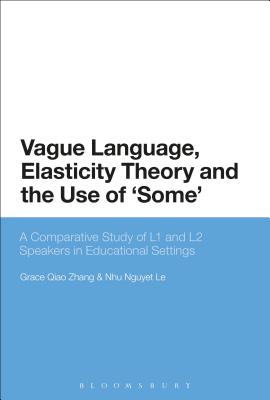In Vague Language, Elasticity Theory and the Use of ’Some’, Nguyet Nhu Le and Grace Qiao Zhang present the first comprehensive study of the word ’some’, focusing on its elasticity. In particular, they consider how ’some’ is both a quantifier and a qualifier, has positive or negative meanings, and has local and global interpretations. They show that the word is used across a meaning continuum and can be used to convey a range of states, including approximation, uncertainty, politeness, and evasion. Finally, they demonstrate that the functions of ’some’ are also multi-directional and non-categorical, consisting of four major functions (right amount of information, mitigation, withholding information, and discourse management).
Based on naturally-occurring classroom data of L1 (American English) and L2 (Chinese- and Vietnamese-speaking learners of English) speakers, Vague Language shows that L2 speakers used ’some’ more than L1 speakers and explores the significance of this, particularly taking account of speakers’ language ability and cultural backgrounds. While this book focuses on the single word ’some’, the authors’ discussion has important implications for language studies more generally, as they call for a rethinking of our approaches to language study and more attention to its elasticity.











